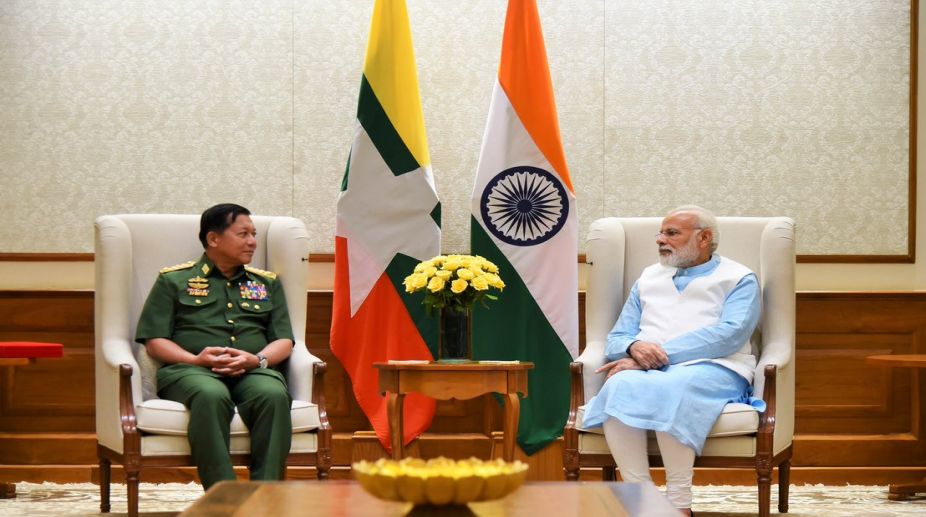Indian Ambassador Vikram Misri has held up India’s federal polity as a model for Myanmar, and said federalism generates a huge stake in the country’s future and progress by a wide cross section of the people.
Addressing the Forum on Myanmar’s Democratic Transition here, Misri said: “We in India do diversity with a capital D. We are happy with more and more powers to the state. That does not weaken our country, it makes it strong.”
Misri, who was earlier ambassador to Spain, said inclusive federalism will help in unity of the country.
“What has happened in India will also play out in Myanmar. If you create an inclusive federation, it will strengthen your unity and not weaken you,” Misri said.
The Indian envoy also referred to Nepal’s effort to create a federation and said Myanmar has many lessons to learn from the successes and failures of the Himalayan country.
“Nepal first started with a polity that would exclude the minorities or most of them. Obviously there were huge protests because that was not acceptable to most,” Misri said.
He said the debates thus generated have helped Nepal slowly reach the goals of an inclusive federalism.
“The process is not yet complete, Nepal is yet to get a constitution and has suffered chronic legislative instability. Myanmar can closely look at the Nepal experience to avoid the mistakes they made,” Misri said.
The Forum on Myanmar’s democratic transition that began on Friday has brought together 35 speakers from Myanmar, other Asian and Western countries to reflect on the progress of democratisation in the country.
Inaugurating the forum, pro-democracy icon and state Counsellor Aung San Suu Kyi stressed the need for “democracy with dignity”.
“We can’t divide peace and development,” she said.
Historically, Myanmar has “lacked” opportunities for growth “while our neighbors are developed”, Suu Kyi said. “But there are advantages in following from the rear. We can take the experiences as lessons from the countries which are already developed,” she said.
But Suu Kyi said she totally disagreed with the widely held notion “that development is more important than peace”.
“If we don’t have peace, the development will not be durable,” Suu Kyi said, adding, “at the same time, if there is no development, we can’t get peace; we have to try for both.”
This is why the Myanmar government is “trying first to stop the civil war in this country”, she said, referring to ongoing peace efforts with armed rebel groups, specially in northern Myanmar bordering China.











